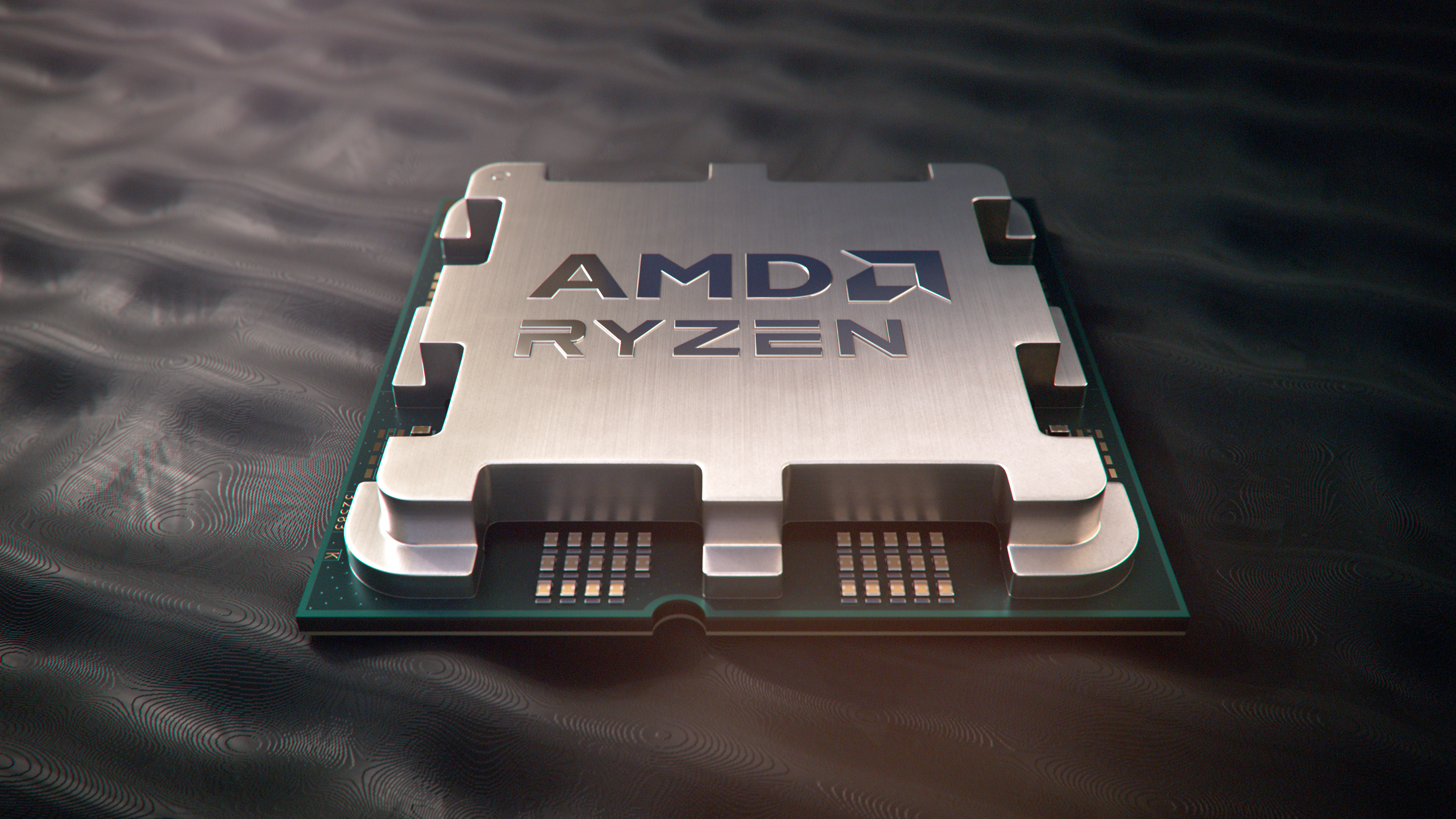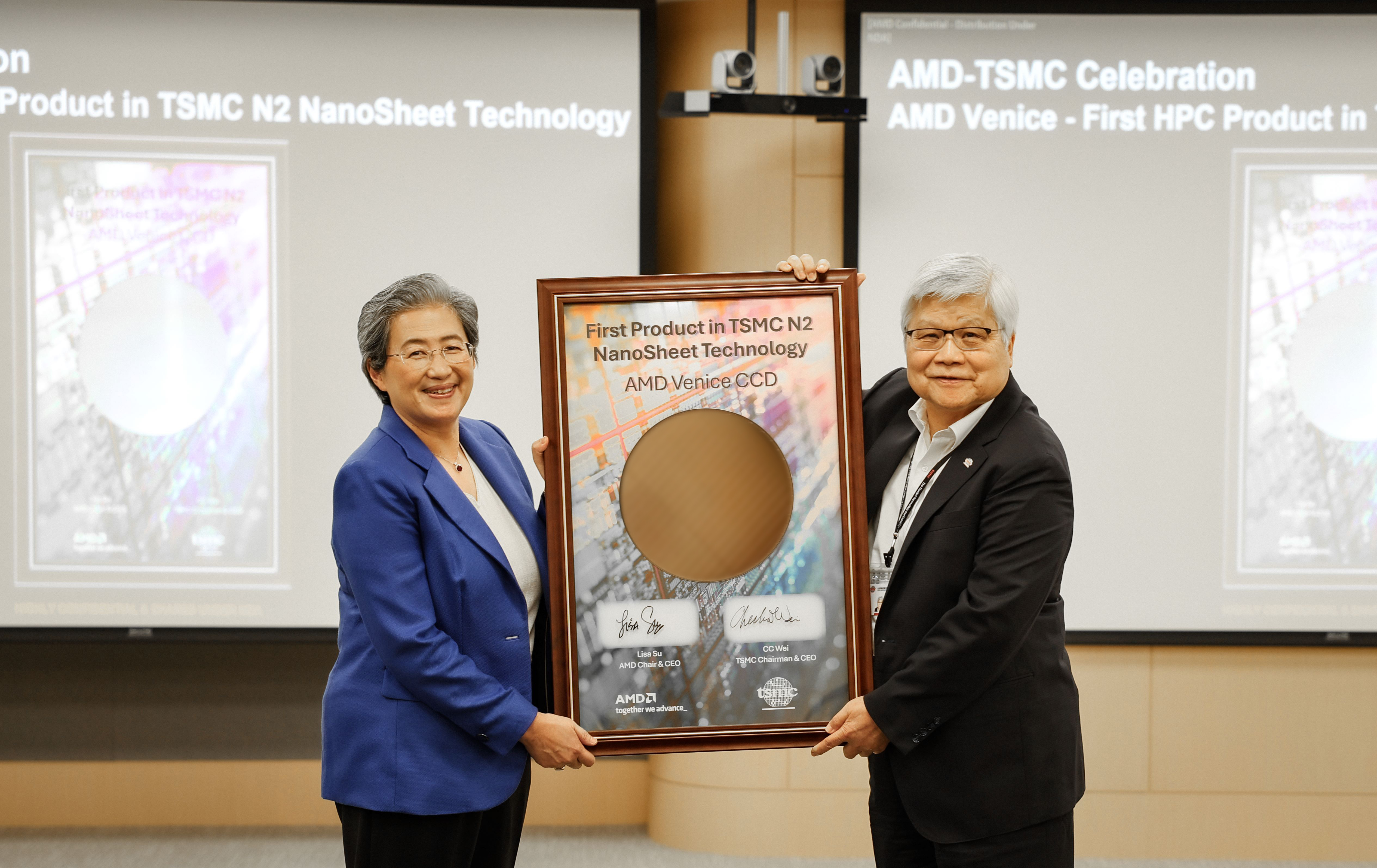AMD CEO says its chips made in the US will be up to 20% more expensive, but claims that it’ll be worth the price hike
Lisa Su estimates chips made in TSMC's US factories will be 5% to 20% pricier

- AMD's CEO indicated that chips made in TSMC's US factories will be pricier
- Lisa Su says they could be 5% to 20% costlier than chips produced in Taiwan
- Su argues that the cost is worth it in terms of diversifying the supply chain
AMD's CEO has admitted that the company's chips will be a fair bit pricier when they are produced in TSMC's factories in the US (as opposed to Taiwan).
Bloomberg reports that it will be more expensive to source chips from TSMC's new Arizona plant than its Taiwan factories. TSMC is the chip maker that AMD uses to manufacture most of its processors and GPUs, and AMD is set to start receiving chips from the Arizona plant before the end of 2025).
At an AI event, CEO Lisa Su said that US chips will be "more than 5% but less than 20%" costlier compared to "similar" parts produced in Taiwan. The chief executive also observed that yields in the US plant are comparable to TSMC's Taiwanese facilities. (The yield is the percentage of chips that make the grade to be used in a finished product – not every piece of silicon does, and chips in that category are often repurposed for lower-tier hardware).
In an interview with Bloomberg that followed the event, Su argued that any extra expense was worthwhile in terms of diversifying where AMD is outsourcing its production. The chief executive said: "We have to consider resiliency in the supply chain. We learned that in the pandemic."
Su also underlined that the demand for AI chips, wherever they are produced, isn't going anywhere and remains massive – which isn't news to anyone, of course.
Analysis: It's still early days for TSMC US

While yields may be similar (or so we're told), what Su doesn't mention is that TSMC's most advanced processes are exclusive to its production facilities in Taiwan. Arizona only goes as far as the N4 node, which is 4nm – whereas the cutting-edge production process for TSMC is now 2nm.
Eventually, though, the plan is to manufacture those more advanced products in the US – the investment in Arizona is a huge one, after all – but for now, this is simply about adding diversity, as Su indicates.
Sign up for breaking news, reviews, opinion, top tech deals, and more.
Still, all the pieces of that diversity puzzle aren't in place yet, at least according to recent reports, which observe that AMD still has to send some US-made chips back to Taiwan for finishing (if they need advanced packaging applied).
Tthe plan is for that to happen in the US eventually – but for now, there's seemingly this clunky and rather impractical workaround in place as part of the rush to get more chips out of the door (to meet AI demand, which is, as mentioned, huge).
That could be one of the reasons why costs may be inflated, alongside potentially higher costs for being based in the US in the first place (such as labor, perhaps).
Su's estimate is quite wide-ranging here, and a price jump of 5% to 20% is a wide gulf. The former seems relatively trivial, the latter represents a much less palatable hike – slapping 20% on the cost of a typical Ryzen workhorse CPU would stick $50 on top, or thereabouts (going by the MSRP of the Ryzen 9600X, which admittedly is selling for a lot cheaper now).
Okay, so you can't boil this scenario down to that outcome – there are a lot more factors to consider here, including that Su's estimate is rather vague – but the higher end of the scale provided for the potential cost increase is somewhat concerning, for sure.
As is the fact that this isn't just some rumor floating down from an anonymous source somewhere in the supply chain, but that it comes from the CEO herself.
You might also like
Darren is a freelancer writing news and features for TechRadar (and occasionally T3) across a broad range of computing topics including CPUs, GPUs, various other hardware, VPNs, antivirus and more. He has written about tech for the best part of three decades, and writes books in his spare time (his debut novel - 'I Know What You Did Last Supper' - was published by Hachette UK in 2013).
You must confirm your public display name before commenting
Please logout and then login again, you will then be prompted to enter your display name.